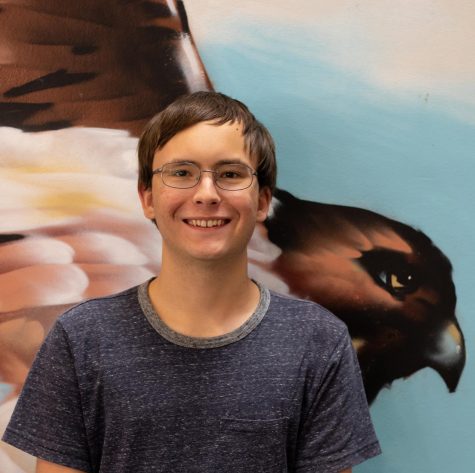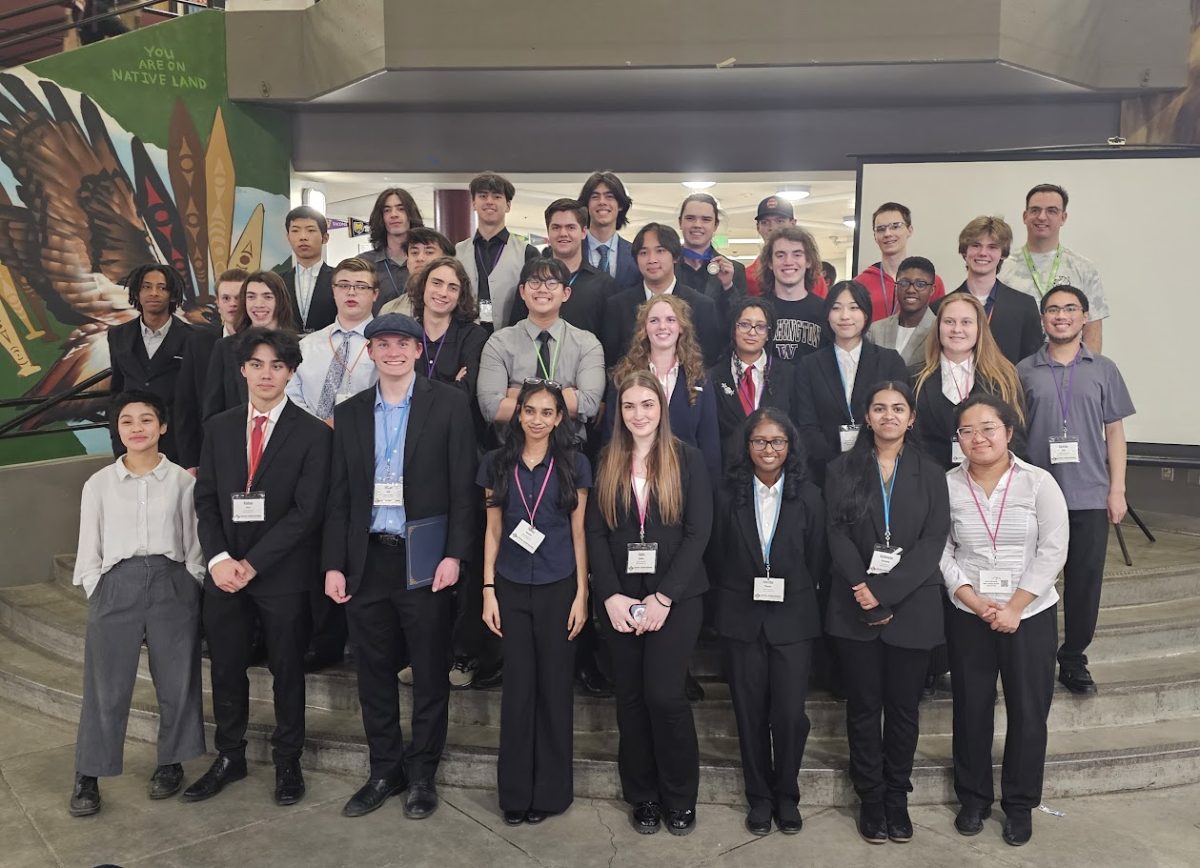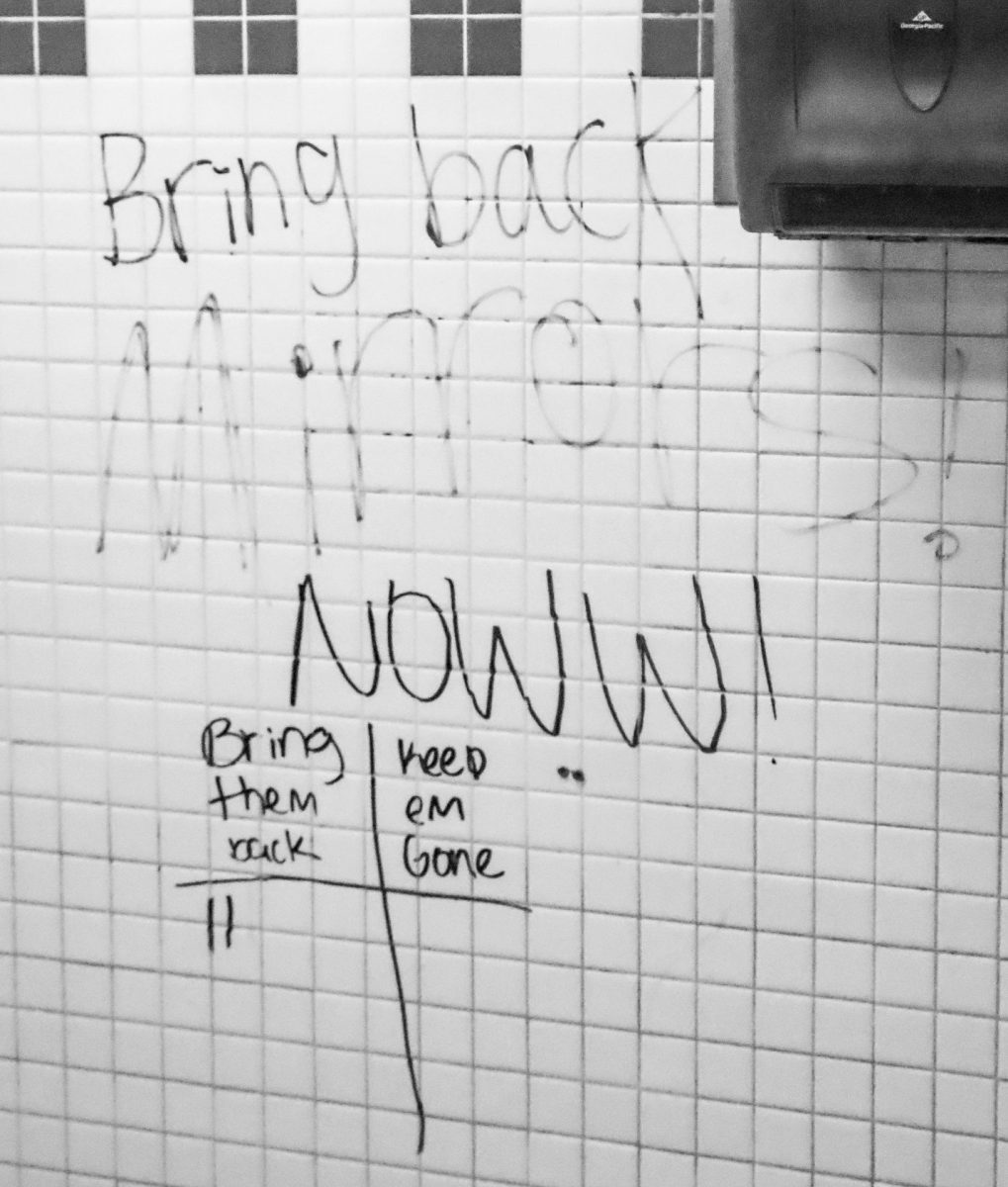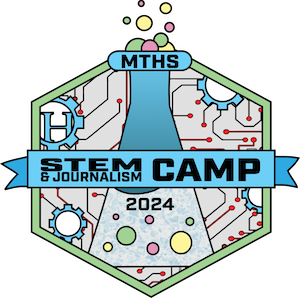In September, the teen support group Alateen resumed operations at MTHS for the 2018-2019 school year. The group, which is advised and managed by MTHS counselor Julianne Peterson during its weekly Thursday meetings, is affiliated with the national Al-Anon Family Groups program and exists to support students who have family members undergoing addiction to drugs or alcohol.
One of the group’s main goals is to help students with close family members or friends undergoing addiction to understand the behaviors which can result from undergoing a situation such as the one they are experiencing. The group uses the 12 steps to recovery program that is employed by Alcoholics Anonymous and attempts to help involved students.
“What happens when you’re in a situation like that is that you develop behaviors that you think are helping, like nagging, trying to control things, trying to be a good kid and get good grades so that their loved one will get better, and so these kinds of behaviors tend to make the people developing them a little bit nutty and cranky,” Petterson said. “So [the group] is to help us get in touch with the things we can change, the things we can’t change and how to take care of ourselves.”
Alateen, which relies on the format of Al-Anon Family Groups, helps teenagers with loved ones undergoing addiction in the same way that adults are helped when undergoing these same issues.
“Al-Anon is a group of people that come together to support each other based on their concern about somebody in their life’s drinking or drug use,” Petterson said. “We don’t diagnose anybody as an alcoholic or anything like that, but anyone who wants to be a member can be a member.”
Although the group is monitored and advised by Petterson, it is completely student led and the students can take the discussions in any way that they think is necessary. Attendance is not enforced and the group has open membership, meaning that students can show up one week and then not show up the next week and remain a full member of the group, showing up whenever they feel it is necessary.
“Sometimes kids can’t come in every week because they have a test or other big assignment, and academics are number one,” Petterson said.
The group meets every Thursday, but it holds its meeting during rotating periods so as to allow maximum attendance, as sometimes students cannot afford to miss a certain period each week. Additionally, meeting in rotating periods ensures that it is not easy for others at the school to determine who is a member of the group, as one of the guarantees of the group is that membership is confidential.
“Nobody has to say anything, we have a format that we read and then members can talk about whatever they want to,” Petterson said. “It’s confidential because the periods change every week, so it is not easy [for the school community] to identify who is in the group.”
Students are allowed to bring friends into the group’s meetings if they have discussed the issues they are facing with their friend and feel that the friend can be trusted to aid the student in overcoming whatever issues they are facing.
Students can join the group by talking to Petterson if they feel that they would benefit from the group’s supporting services. Additionally, sometimes teachers and counselors will let her know about students who might be good candidates for the group. After receiving a recommendation from another staff member, she will call the student into her office and discuss it with them, tell them what group is like and provide them with an invitation to the meetings. However, it is left up to the students whether they accept or decline the invitation.
“Anybody can come who wants to, if you think you belong then you do,” Petterson said.
Petterson does not operate the group alone and is supported in operating the group by community volunteers from Al-Anon Family Groups who who receive training certified by the national organization.
“We also have two people come from the community who are part of the larger Al-Anon Family Groups [organization], so they go through a training process after being involved [with the organization] for two years and they can become an ‘Al-Anon member in Alateen’s service,’” Petterson said.”
Alateen exists as an organization chapters that are primarily located outside of schools, and Petterson also serves as a volunteer at an Alateen group at the Edmonds Senior Center. The Alateen meetings at the Edmonds Senior Center coincide with meetings of both Al-Anon and Alcoholics Anonymous, any many of the attendees are the children of the attendees of the other meetings. Her volunteering with Al-Anon Family Groups gave Petterson the idea to start up a chapter of Alateen at MTHS.
“I got the group going here because I noticed that a lot of students were talking about issues that could be supported by a group like [Alateen],” Petterson said.
In order to start the MTHS chapter of Alateen, Petterson had to be approved by the national organization of Alateen, which entailed going through a background check administered by the national organization and getting administration approval to start the chapter.
Petterson believes that the MTHS Alateen group is able to assist students in understanding issues that they may face from someone who is close to them’s addiction and perhaps alleviate some of the consequences of these issues.
“[Some of the issues the group discusses are] kids struggling with grades or attendance or being forced to drive their parents around because their parents lost their license due to a DUI,” Petterson said. “Sometimes [students] are worried about a family member or friend who might overdose [on drugs]. [These issues] really affect their school work.”
One of the main benefits of membership in the group, according to feedback Petterson has received, is to help students realize that the addictions of others are not things for which they are responsible.
“Students say that it just helps to hear that they’re not the only ones, when they sit in the group and hear what people talk about…it makes them realize that they didn’t cause [the addiction], it’s not their fault and there’s not a lot they can do to control it,” Petterson said. “Students may start thinking that [the addiction of a love one] is their fault, because parents may start blaming them…it’s that kind of thought process that we try to help kids understand.”
Petterson hopes that, through their involvement with the group in high school, students will gain a lifelong understanding of how to handle the addictions of other people in their lives.
“You can’t do anything about [a loved one’s addiction], except for take care of yourself and know what you can change and what you can’t change,” Petterson said. “My thought is that when kids hear this…that someday as an adult and potentially find themselves in a similar situation they’ll remember that there is a place they can go to get help with this.”
Petterson feels that there are not enough Alateen chapters in the area to adequately support the many young people throughout the state who may need to use the organization’s services. This was another one of her main motivators for starting the MTHS chapter of Alateen, as she feels that students in the area would greatly benefit from a chapter at their local high school, meaning that students wouldn’t have to travel far after school, as the closest outside chapter is in Edmonds, to attend the meetings that may be necessary for both their personal and academic success.
Petterson also feels that the Alateen meetings that occur inside of school have the potential to be more beneficial to the student attendees, as they occur in a more professional environment when students are still in a school-related state of mind. For example, Petterson observes that students at the Tuesday Alateen meetings at the Edmonds Senior Center tend to be exhausted after a long day of school and thus are not always in a state of mind favorable to discussing serious issues such as the consequences of addiction.








